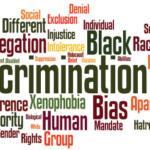(Reuters Health)—Researchers who examined implicit and explicit gender biases in the U.S. medical community found professionals of both genders are more likely to associate the word career with men and the word family with women.
And U.S. surgeons broadly see surgery as a man’s career and family medicine as a woman’s field, the researchers also found.
It’s important to be aware of such stereotyping and gender biases among doctors and other medical professionals, to minimize the potential effect, the researchers say.
Dr. Arghavan Salles and colleagues analyzed responses collected over a decade from 43,000 healthcare professionals who took a “gender-career” association test, a common tool used to measure unconscious and conscious biases that influence interactions with others.
Half of the professionals were over age 32. Although roughly four out of five were women, overall the responses showed conscious and unconscious biases associating men with career and women with family,” Dr. Salles’ team found.
Next, the researchers recruited 131 doctors attending a surgeons’ meeting in 2017 to take a gender-specialty test that assessed biases related to the medical specialties of surgery and family medicine. In this group, half the participants were over age 42 and 35% were women.
Both male and female surgeons held implicit and explicit biases associating men with surgery and women with family medicine, the test showed.
However in both tests, women were less likely than men to explicitly make these associations, the authors reported July 5 online in JAMA Network Open.1
Dr. Salles, herself a surgeon, says the study came about because she was interested in collecting preliminary data on the extent of gender bias in healthcare.
“I’d seen a lot of the ways in which women are treated differently from men, both when I was a resident, and as a faculty member,” she tells Reuters Health in a phone call.
“For years people have said, ‘Well, we just haven’t had enough women going into medicine, so we just need to wait a while and then we’ll see that those numbers will go up,'” says Dr. Salles, who was at Washington University in St Louis when she worked on the study and hasn’t yet started her new position.
But, she adds, “Women have been more than 45% of every entering class across this country since the late 1990’s … and yet only 16% of deans of medical schools are women, so there’s something else going on there.”
She doesn’t think the results reflect only what people see in the real world.
It’s true there are fewer women surgeons, “so of course we don’t really expect women to be surgeons, so … then we have fewer women surgeons,” Dr. Salles says. “There’s definitely [a cycle] going on there.”
But there are also fewer women than men in family medicine, she points out.
Sociologist Jennifer Sheridan of the Women in Science & Engineering Leadership Institute at the University of Wisconsin, Madison, who was not involved in either test, cautions implicit bias is an ordinary phenomenon and “does not actually tell us whether healthcare professionals and/or surgeons are acting with bias.”
“This study merely documents the presence of biases that most people have, and it suggests that the bias could affect things we care about,” Ms. Sheridan tells Reuters Health.
Ms. Sheridan thinks the gender-specialty test may have been unreliable. “It seems to me that choosing family medicine as the discipline opposite surgery might not have been a fair choice, given the word ‘family’ is right in (the) name of the category,” she says.
Another limitation of the study, which the researchers acknowledge, is that they didn’t know the specialties of the healthcare professionals who took the gender-career association test.
Still, although her team agrees on the need for further study, Dr. Salles believes the current results could inform hiring managers about the need to check for bias when making appointment decisions.
“What I think is the standard in medicine … is trying to assess whether someone is like you or not,” she said. As long as people keep doing that in job interviews, she adds, “then we’re going to keep selecting for the same types of people.”
References
- Salles A, Awad M, Goldin L, et al. Estimating implicit and explicit gender bias among health care professionals and surgeons. JAMA Netw Open. 2019 Jul 3;2(7):e196545.
- Dossa F, Baxter NN. Implicit bias in surgery-hiding in plain sight. JAMA Netw Open. 2019 Jul 3;2(7):e196535.



